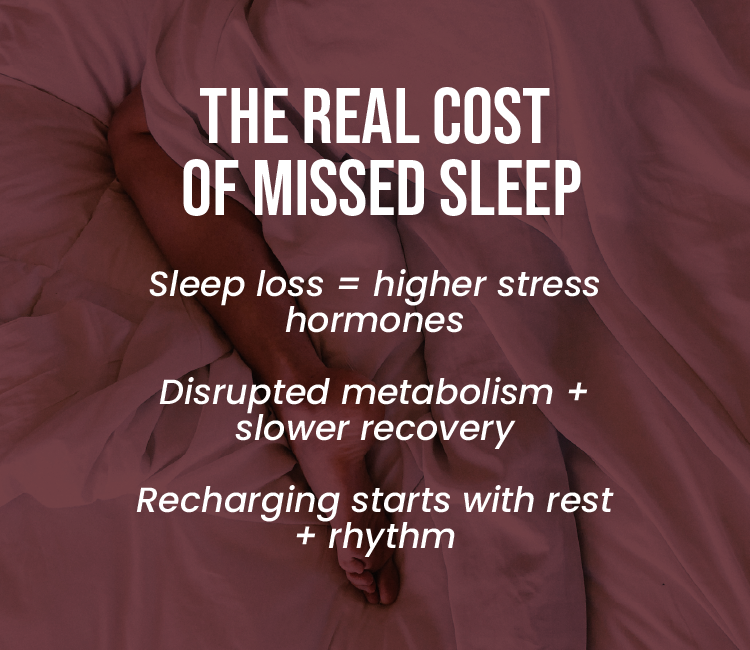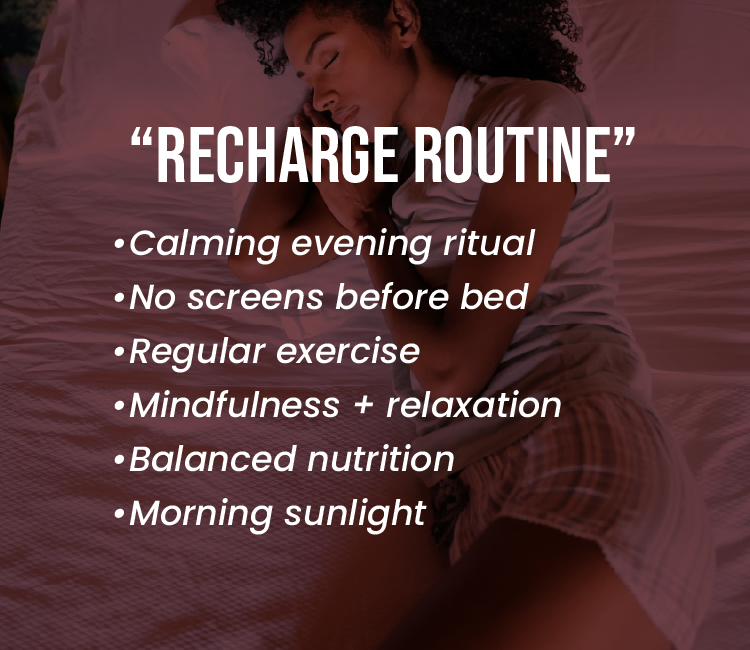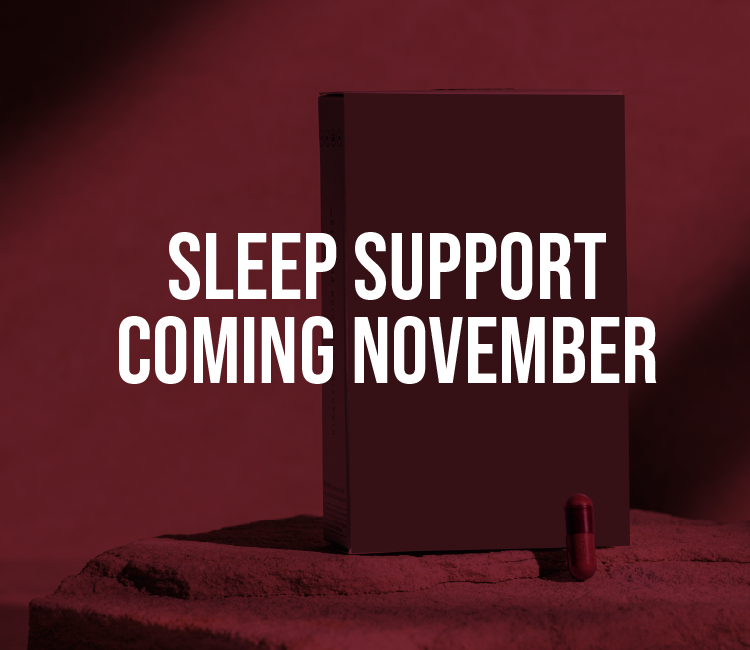
Break the sleep-stress cycle to support immune health
When life gets hectic, pulling an all-nighter or sacrificing a few hours of sleep might seem like a necessary evil. Deadlines, social plans, and late-night screen time often take precedence over a good night’s rest. But, consistently missing out on sleep isn’t just about feeling tired the next day. The true cost of sleep deprivation extends far beyond grogginess, impacting your metabolism, immunity, weight regulation, and mental health, and these effects can accumulate over time.
Understanding the science behind sleep’s vital role in your health can motivate you to prioritize rest. When you consistently cut back on sleep, your body pays a price. It’s not a quick fix; rather, these effects build up gradually, leading to serious health issues down the line. Let’s explore what happens when sleep is sacrificed, how it affects your body at a cellular level, and most importantly, how you can recharge and protect your well-being.

Sleep plays a crucial role in regulating your body’s energy balance. When you don’t get enough sleep over extended periods, your body’s ability to process glucose (the sugar your cells use for energy) becomes impaired. This is called reduced insulin sensitivity.
Scientists have shown that sleep deprivation causes your body to respond less effectively to insulin, the hormone responsible for helping cells absorb sugar. As a result, blood sugar levels remain elevated for longer, increasing the risk of Type 2 diabetes. Chronic sleep loss can lead to a vicious cycle: poor sleep impairs insulin function, which then affects your energy levels and hunger hormones, prompting you to eat more and move less, fueling weight gain.
Your body regulates stress through a hormone called cortisol, which follows a natural daily rhythm. Normally, cortisol peaks in the morning to help you wake up and then gradually declines throughout the day. But sleep deprivation disrupts this pattern, keeping cortisol levels high when they should be low.
Elevated cortisol over time promotes fat storage, particularly around the abdomen, and can increase appetite. It also hampers recovery from stress, impairs immune function, and can lead to feelings of anxiety or depression. Essentially, your body perceives chronic poor sleep as a constant stressor, which can have damaging effects on overall health.

Mitochondria are the powerhouses of your cells, generating the energy needed for every biological process. Sleep deprivation has been shown to impair mitochondrial function, reducing their efficiency and increasing oxidative stress, a kind of cellular wear and tear.
When mitochondria aren’t working properly, your cells can’t produce enough energy, which affects everything from muscle strength to brain function. Over time, mitochondrial dysfunction is linked to age-related diseases, neurodegeneration, and metabolic disorders.
The impact of sleep on mental health is profound. Chronic sleep deprivation is associated with increased risks of depression, anxiety, and cognitive decline.
Additionally, sleep is critical for consolidating memories and clearing mental “clutter.” Without enough deep sleep, your ability to focus, solve problems, and retain new information diminishes. Over time, this can lead to decreased productivity and mental fatigue.
Lack of sleep affects the brain regions responsible for emotion regulation, making you more prone to irritability, mood swings, and feelings of helplessness. It’s a vicious cycle: poor sleep worsens mental health, which in turn makes it harder to sleep well.

The good news? You can reverse some of these effects by prioritizing quality sleep and relaxation. Here’s how:

Sleep isn’t a luxury; it’s a biological necessity. By ignoring its importance, you’re not just missing out on rest, you’re compromising your metabolism, immunity, weight, and mental health. Science makes it clear: chronic sleep deprivation rewires your body’s critical systems, increasing the risk of serious health problems.
But you hold the power to change this. Start small. Commit to one extra hour of sleep tonight, then build from there. Over time, you’ll notice the difference: more energy, better mood, sharper focus, and improved overall health. The real cost of missed sleep is too high to ignore. Invest in your rest, and you’ll reap the benefits for years to come.

Explore the rise of AI in wearable health tech with MAKE Wellness. Learn how smart devices help track wellness, activity, and overall health efficiently.
read
Stay active safely this summer with MAKE Wellness tips. Learn 4 ways to move smarter in the heat while maintaining energy, hydration, and overall wellness.
read
Actionable steps to unlock the secret of your circadian rhythm
read